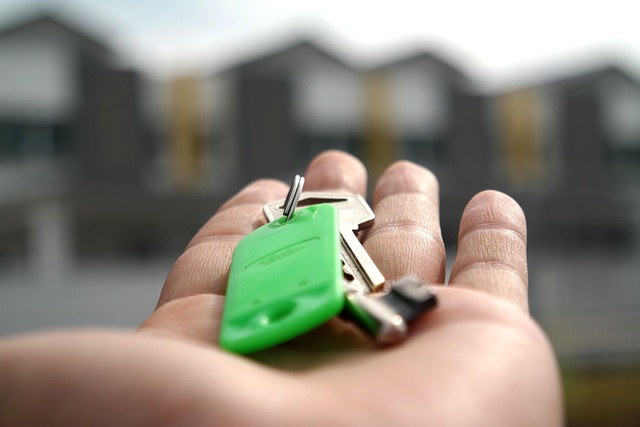Wireless security solutions, powered by solar energy and advanced technologies like long-range wireless cameras and tailored motion sensors, are transforming the way remote homeowners protect their properties. These systems offer flexible, efficient, and accessible monitoring via smartphone apps, alerting users to intrusions, fires, or carbon monoxide incidents in real-time. Ideal for farms, cabins, and vacation homes, solar-powered devices ensure consistent operation without maintenance concerns. By strategically placing long-range wireless cameras and motion sensors, homeowners can remotely monitor entry points and valuable assets worldwide, enhancing peace of mind with eco-friendly smart home security tailored to rural living's unique challenges.
“Securing your remote home has never been easier with the advent of advanced wireless security systems. This comprehensive guide explores the benefits and simplicity of installing a robust remote home security network. From solar-powered solutions to long-range cameras and motion sensors, we delve into the key components making rural areas safer. Learn how to implement these modern systems efficiently, ensuring your peace of mind without breaking the bank. Discover the ultimate in smart home security tailored for remote properties.”
- Understanding Wireless Security for Remote Homes
- Benefits of Solar-Powered Wireless Security Systems
- Implementing Long-Range Wireless Cameras and Motion Sensors
- Easy Installation Tips for Smart Home Security in Rural Areas
Understanding Wireless Security for Remote Homes

Understanding Wireless Security for Remote Homes
In today’s digital era, securing remote homes has become more accessible and efficient with wireless security solutions. Wireless security systems offer a straightforward and flexible approach to protecting rural areas and remote properties. These systems utilize advanced technologies like long-range wireless cameras, solar-powered components, and motion sensors tailored for challenging landscapes. They provide homeowners with peace of mind by enabling them to monitor their properties remotely via smartphone apps or web interfaces.
For instance, smart home security systems designed for remote locations offer real-time alerts on intrusions, fire, or carbon monoxide incidents. Solar-powered wireless security devices are particularly advantageous as they operate independently from traditional power grids, making them reliable in areas with inconsistent electricity supply. This versatility makes wireless alarm systems ideal for various settings, whether it’s a farm, cabin, or remote vacation home.
Benefits of Solar-Powered Wireless Security Systems

For homeowners in remote areas, securing a property can be a significant challenge due to isolation and limited infrastructure access. Wireless security systems offer an ideal solution, especially when combined with solar power for an eco-friendly approach. Solar-powered wireless security systems provide several advantages for remote homes; they eliminate the need for burrowing cables or complex wiring, making installation swift and hassle-free. This is particularly beneficial in rural areas where accessibility can be restricted.
These systems are versatile and efficient. Long-range wireless cameras and motion sensors can be strategically placed to monitor entry points, surrounding areas, and valuable assets without the need for an on-site power source. They are also smart home security solutions that enable remote monitoring and control via a mobile app, giving homeowners peace of mind from anywhere in the world. With their energy efficiency, these systems ensure consistent operation without the worry of frequent battery replacements or maintenance.
Implementing Long-Range Wireless Cameras and Motion Sensors

Implementing Long-Range Wireless Cameras and Motion Sensors is a game-changer for securing remote homes. These innovative technologies allow homeowners to monitor their properties from virtually anywhere, ensuring peace of mind even when they’re away. Long-range wireless cameras provide clear, real-time video feeds, capturing every detail in rural landscapes where traditional wired systems might struggle. They are ideal for remote areas with poor signal reception or limited infrastructure.
Motion sensors further enhance the security of remote homes by detecting any unusual activity. Solar-powered models offer a sustainable and cost-effective solution, eliminating the need for frequent battery replacements. These sensors can be strategically placed to cover blind spots around the property, ensuring no unwanted visitors go unnoticed. Integrating these advanced wireless systems into smart home security for remote properties offers comprehensive protection tailored to the unique challenges of rural living.
Easy Installation Tips for Smart Home Security in Rural Areas

Setting up a secure environment for your remote home is now more accessible than ever with wireless security solutions tailored for rural areas. One of the key advantages of these systems is their ease of installation, allowing homeowners to protect their properties without the need for complex wiring or professional installers.
When installing a wireless security system for your remote home, start by assessing your property’s unique needs. Consider factors like perimeter coverage, desired surveillance capabilities, and power sources. Solar-powered wireless cameras, for instance, offer a sustainable and discreet option for long-range monitoring. Integrate motion sensors to trigger alerts when any unauthorized movement is detected, providing an extra layer of security. Ensure the system is compatible with your existing smart home setup for seamless control and monitoring from afar.
The easy installation and growing accessibility of wireless security solutions make protecting remote homes more feasible than ever. By leveraging solar-powered technology and long-range wireless cameras, homeowners can now enjoy robust security systems tailored to their rural settings. Implementing these innovative features—including motion sensors designed for remote areas—empowers folks to safeguard their properties efficiently and effectively.
